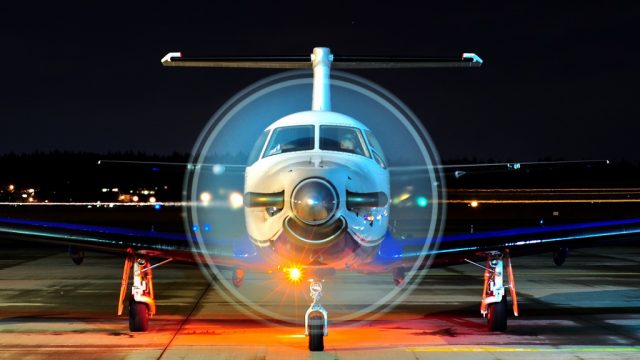Airlines vie for federally subsidized routes in Mississippi

READY FOR TAKEOFF: SeaPort Airlines is one of the small carriers vying to take over federally-funded routes at several Mississippi airports
By Steve Wilson | Mississippi Watchdog
With the help of federal taxpayer funds, several airports in Mississippi are hoping to maintain their commercial air service.
For several small regional carriers, the competition is on to take over federally subsidized routes as part of the Essential Air Service program at several smaller Mississippi airports. Tupelo‘s airport received four bids for service. Hattiesburg-Laurel, Meridian and Greenville’s Mid-Delta Airport received three apiece.
Hattiesburg-Laurel Regional Airport Executive Director Tom Heanue said he was pleasantly surprised at the amount of interest.
“When Delta announced they were departing small communities two years ago, we really got nothing (in terms of proposals),” Heanue said. “Luckily, Silver decided to expand and make Atlanta a hub. We were on the precipice of non-existence, because there aren’t a lot of regional carriers out there and you might be looking at nothing. It was surprising to end up with three. Somebody actually loves us.”
The subsidy amounts, aircraft, airports served and choice of hub connection for the EAS proposals vary.
The services using turboprop aircraft have the most inexpensive proposals. Air Choice One’s multi-tiered proposal using Piper or Cessna aircraft would range from $2.8 to $3.9 million per airport in federal subsidies to connect Greenville and Tupelo with Memphis. Among the options is a connection between Greenville, Tupelo and Northwest Alabama Regional Airport in Muscle Shoals, Ala., with Memphis and Nashville for a $6.9 million combined subsidy.
SeaPort would require a $1.4 million subsidy to connect Greenville with Memphis and $2.5 million to link Tupelo with Nashville and Memphis. SunAir would use eight-passenger Piper Chieftain aircraft to link Tupelo and Greenville with Memphis and Hattiesburg with New Orleans for a total subsidy of $7.5 million.
The two airlines that would use jets on the route are more expensive. ExpressJet is asking for a $7.8 million subsidy to service Meridian and Laurel-Hattiesburg with a connection to Dallas-Fort Worth. Aerodynamics Inc.’s proposal would require a $12 million subsidy and connect Meridian and Laurel-Hattiesburg with Atlanta’s hub, much as predecessor Silver did.
READY FOR TAKEOFF: Aerodynamics Inc., a small regional carrier, has put in bids to service several smaller Mississippi airports.
The proposals are in the community comment phase. After the airport boards and mayors sign off on a letter to the Department of Transportation with the city’s choice of a carrier, the DOT will make the ultimate decision on the carrier and subsidy rate.
The carriers are trying to replace Silver Airways, which will serve the four Mississippi airports with an Essential Air Service subsidy worth $15 million until new carriers are selected. It announced it was pulling out of Hattiesburg-Laurel, Meridian, Greenville and Tupelo airports and Muscle Shoals in April.
“Commuter airlines aren’t always profitable and are leaving small markets,” Heanue said. “The only ones they serve are the ones that have proven ridership.”
The EAS subsidy was developed after airline deregulation in 1978 and was intended to sunset after 10 years. Now, 36 years later, it continues to take a bigger and bigger chunk of federal dollars. This year, the federal government spent more than $218 million to serve 117 communities.
Brett Snyder, a former airline marketing expert and analyst who runs the airline blog Crankyflier.com, said the time and justification for these subsidies is past.
“Except in few cases, I think it’s a tough argument to make that EAS is a worthwhile investment by the federal government when there are better alternative flight options within a reasonable driving distance,” Synder said.
That number is going to decrease as a law signed by President Obama will eliminate EAS subsidies to airports within 175 miles of a large or medium hub and with less than 10 enplanements, or passenger boardings, per day. Greenville’s airport was on the list for termination of its subsidy released in April, as it only averaged 9.3 enplanements per day.
While the number of airports served by the EAS has gone down, the amount of subsidies has gone up.
Silver received a subsidy of more than $2.4 million to provide Meridian with 13 nonstop round trips per week to Atlanta. Delta only took a subsidy of more than $684,000 for the same number of flights.
Silver received an annual subsidy of more than $2.9 million to provide 12 weekly trips to Atlanta from Hattiesburg, up from the $1.3 million that Delta received.
Contact Steve Wilson at swilson@watchdog.org
Get regular updates on Mississippi through our Facebook or Twitter accounts







